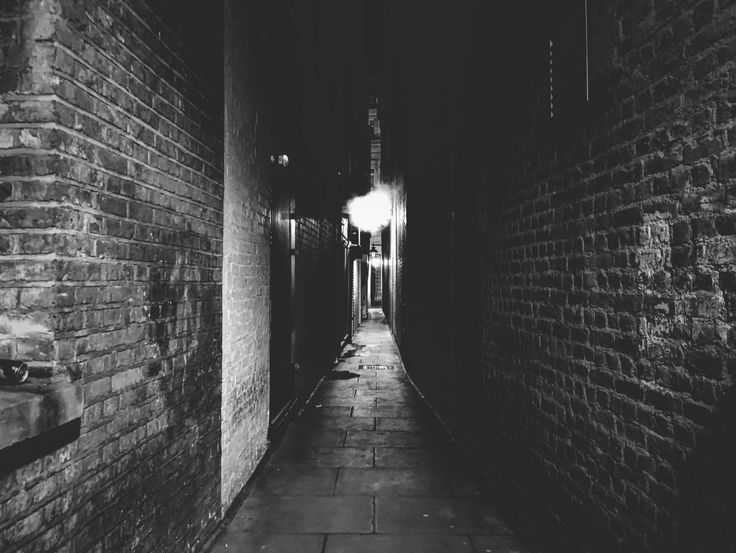Many European towns and cities have been around a very long time, and most weren’t planned or designed at all. People just built structures where they wanted to, and where they could. If you’re building a house, the space inside is almost always more important to you than the space outside — unless you’re Frank Lloyd Wright, of course, but most people aren’t. Anyway, what this leads to is quite a few very narrow, sometimes twisty passages between buildings. When there’s a lot of something, there also tends to be a plethora of words for pretty much the same thing — at least in English (which has also been around a very long time and wasn’t planned or designed).
Everybody knows the word “alley”, for one. But if the alley — or even hallway — is particularly narrow, dark, or hard to navigate, you might remark “Why is that there bloody tabby cat allust slap-bang in the middle o’ them dark carpets whenever Hi go along the scutchell?” (1995). A “scutchell” is a narrow, dark, hard-to-navigate passageway. Don’t ask about the origins of the word; nobody has any clue.
If you don’t like “scutchell,” which has been around for an unrecorded amount of time — it was listed in an 1847 book about archaic words — you could try “twichel.” This is the same sort of thing; a narrow passage between walls, but its ancestry goes back to the Old English word “twichene,” which also meant a fork in a road. It was in use at least as early as 1435: “Ye comon twechell yat lyges on ye northe syd ye Fleshusse.” And also as recently as 1889: “All persons passing by this twitchel are requested to go up or down directly.”
Or how about “ginnel”? This one shows up in legal proceedings from 1669, when “Wm Jackson hath made a Doore into A Ginnell belongeinge to Edm.Heywood.” I don’t know what the problem was, exactly, or whether Jackson or Heywood won the case. But this word also stuck around well into the 1800s: “Through th’ ginnel, an’ up th’ steps.”
The reigning champ of small alleyways, though, is the still-common word “lane.” Lane even predates Old English, going back to lost languages like Old Frisian and probably even before. It’s one of the rare words that means exactly the same thing today that it meant two thousand years ago, so “Euery strete and lane in london and in the subarbes” makes just as much sense today as it did when it was written in the 1400s.
Thanks to modern city planning and zoning regulations, there aren’t many scutchells, ginnels, twitchels, or lanes being created now, at least in the US and UK. Except possibly in videogame worlds, where including a twitchel or two might fit in pretty well.

